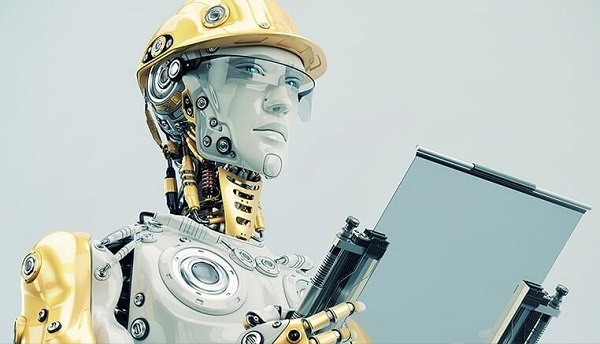The Factory of the Future isn’t some futuristic fantasy. It’s quickly becoming the new reality. And tech-savvy manufacturers are either on board or preparing for change. 40% of manufacturers believe that smart manufacturing and its foundational technology—the Internet of Things (IoT) — are within reach and that it’s the right time to invest.

The Future of Manufacturing
The projections for IoT impact are staggering. Analysts say the global economic impact may reach $19 trillion by 2030. And as many as 50 billion devices will be connected collecting and communicating data, causing automated responses.
According to IDC’s 2015 Vertical IT and Communications Survey of 602 United States-based manufacturers, cloud services are at the top of manufacturers’ IT initiatives, and just over 43% of manufacturers are using public clouds and 56% are using private clouds in pilot, proof of concept, or in production.
Read more: Manufacturers adapt to Industry 4.0
The last several years have seen an increasing number of industrial robots produced and deployed, with the current volume tripling the figures from just 6 years ago. In fact, the global robotic systems market is estimated to reach $41 billion by 2020.
Amazon announced plans to roll out 10,000 robots into a network of warehouses—a move which it says will create up to $900 million in fulfilment cost savings—or up to 40% savings on cost per order.
Two-thirds of manufacturers are already adopting 3D printing, and it is estimated that the global 3D printer market will reach $6 billion by 2017.
Ford reported that traditional engine cover production takes 4 months and $500,000, but with 3D printing, it takes just 4 days and $3,000.
McKinsey Global Institute estimates suggest that by fully implementing social technologies, companies have an opportunity to raise the productivity of interaction workers—high-skill knowledge workers, including managers and professionals—by 20 to 25%.
Read more: Digital Transformation in Manufacturing - the 9 Critical Steps

The Factory of the Future
There’s no question—manufacturing is facing an exciting time of disruptive technology in IT systems as well as operations. This convergence of forces is creating a new type of manufacturing: The Factory of the Future.
The Factory of the Future is highly productive and efficient. In this model, there are no silos of data or obstacles to visibility. Plant managers, front-line personnel, and back-office staff share the same view of real-time data and the same goal of making customer satisfaction their top priority.
Every step in the product lifecycle, every resource, every analytical report, every transaction stored in the cloud supports the ultimate strategy to be relevant, resourceful, and customer-centric. The Factory of the Future takes advantage of the latest innovations in IT solutions, as well as refined best practices for shop floor operations.
The Factory of the Future is one where interconnected machines and systems communicate, sharing data, and responding to input from customers, supply chain partners, and subcontractors across the globe.
Leaders who are forwarding-thinking and confident in adopting innovative operational models will be able to seize early opportunities and define new standards. They will pave the way, leading to the next Industrial Revolution.
But, laggards who wait to embrace digital change are likely to fall far behind their competitors and ultimately flounder. They will be unable to meet customer expectations and struggle to compete in today’s global economy.
Early adopters of modern solutions that have at least partially implemented smart manufacturing initiatives have documented measurable results:
- 82% reported increased efficiency
- 49% reported lower product defects
- 45% reported customer satisfaction gains
Moving to the forefront of innovation doesn’t happen overnight. An interconnected web of data and automation requires an underlying digital strategy of interoperability.
Read more: SAP vs. Infor – Software Giants Face Off Over Cloud StrategyResearch shows that 35% of manufacturers are working on an IoT strategy and putting tactics in place to implement that strategy.
Seize the opportunity
In order to seize the new opportunities of the Factory of the Future, you need to start now.
First, build a company culture that:
- Places the customer first
- Stresses being agile and proactive
- Strives to anticipate customer needs
Then, put safeguards in place to ensure you’re meeting your goals for product quality, on-time delivery, and as-promised value. Use tools that give you an added advantage, including:
- Mobile solutions, so personnel can remain connected from any location, any time
- Social tools, so colleagues and partners can more easily collaborate
- Configuration tools, so you can more easily manage product personalisation
- Cloud deployment options, so you can quickly and cost-effectively expand into new markets and untapped regions
Read more: How to Create a Digital Culture in the Workplace
As you make strides toward becoming a Factory of the Future, you’ll need to differentiate yourself from the competition. This means being innovative, willing to collaborate with customers and supply chain partners, and able to embrace disruptive technologies like 3D printing, IoT, Big Data, and robotics.
Above all, you must have a strategy. To build a successful strategy and deploy tools effectively, it’s essential to work with a solution provider that:
- Understands the complexities of your market
- Has a proven record and expertise in manufacturing applications—from ERP solutions to cloud deployment and factory floor operations
- Has an understanding of unfolding trends and knows how modern IT solutions can help you reach your goals
For stay updated with the latest trends in manufacturing by subscribing to our monthly newsletters.
 English
English  Vietnamese
Vietnamese 


